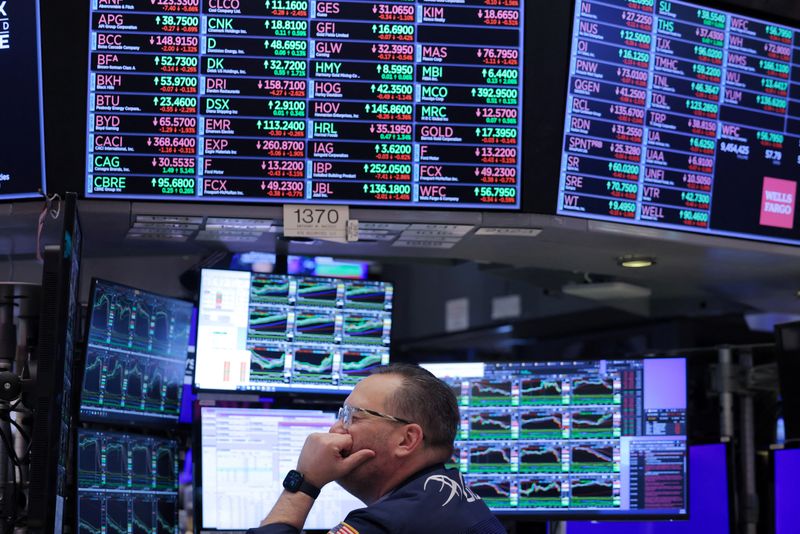Navitas stock soars as company advances 800V tech for NVIDIA AI platforms
Investing.com - A weaker dollar and stabilizing earnings revisions for the so-called "Magnificent 7" group of mega-cap tech companies could drive a rally in U.S. stocks, according to analysts at Morgan Stanley (NYSE:MS).
The benchmark S&P 500 has slid by more than 3% so far this year, as investors have fretted about elevated valuations and indications that President Donald Trump’s tariff plans could dent overall economic activity. The slide also briefly brought the index down to correction territory, typically defined as a 10% or more decline from a recent peak.
At the same time, equities in Europe have outperformed, with traders enticed by cheaper valuations and hopes for increased spending pushes by regional governments.
In a note to clients on Monday, the Morgan Stanley analysts led by Michael Wilson flagged that the relative underperformance on Wall Street has partly been tied to quarterly corporate returns being weighed down a stronger dollar.
But the brokerage said this trend "may now be shifting" as the dollar is down 5% since touching highs in January.
"This should offer a tailwind for U.S. revisions and is one reason we think relative performance versus international developed equities can swing back in favor of the U.S. in the near-to-intermediate term," the analysts said.
Earnings revisions at Magnificent 7 stocks -- which include big-name tech players like Amazon (NASDAQ:AMZN), Facebook-parent Meta Platforms (NASDAQ:META) and Google-owner Alphabet (NASDAQ:GOOGL) -- also "look like they may be bottoming, which could support a rotation back to the U.S.," the analysts added.
These dynamics, along with a falling 10-year U.S. bond yield and oversold positioning, continue to support the potential for a "tradeable rally" in the near term in the S&P 500 from a level of around 5,500.
On Friday, the average inched up by 0.1% to 5,667.56 after Trump said there could be some flexibility in his tariff stance, raising expectations that sweeping levies due to come into effect on April 2 may not be as severe as initially thought.
"[W]e are watching [...] labor [market] data, [purchasing managers’ indexes], and earnings revisions carefully as signposts for a more durable rally," the analysts said.
